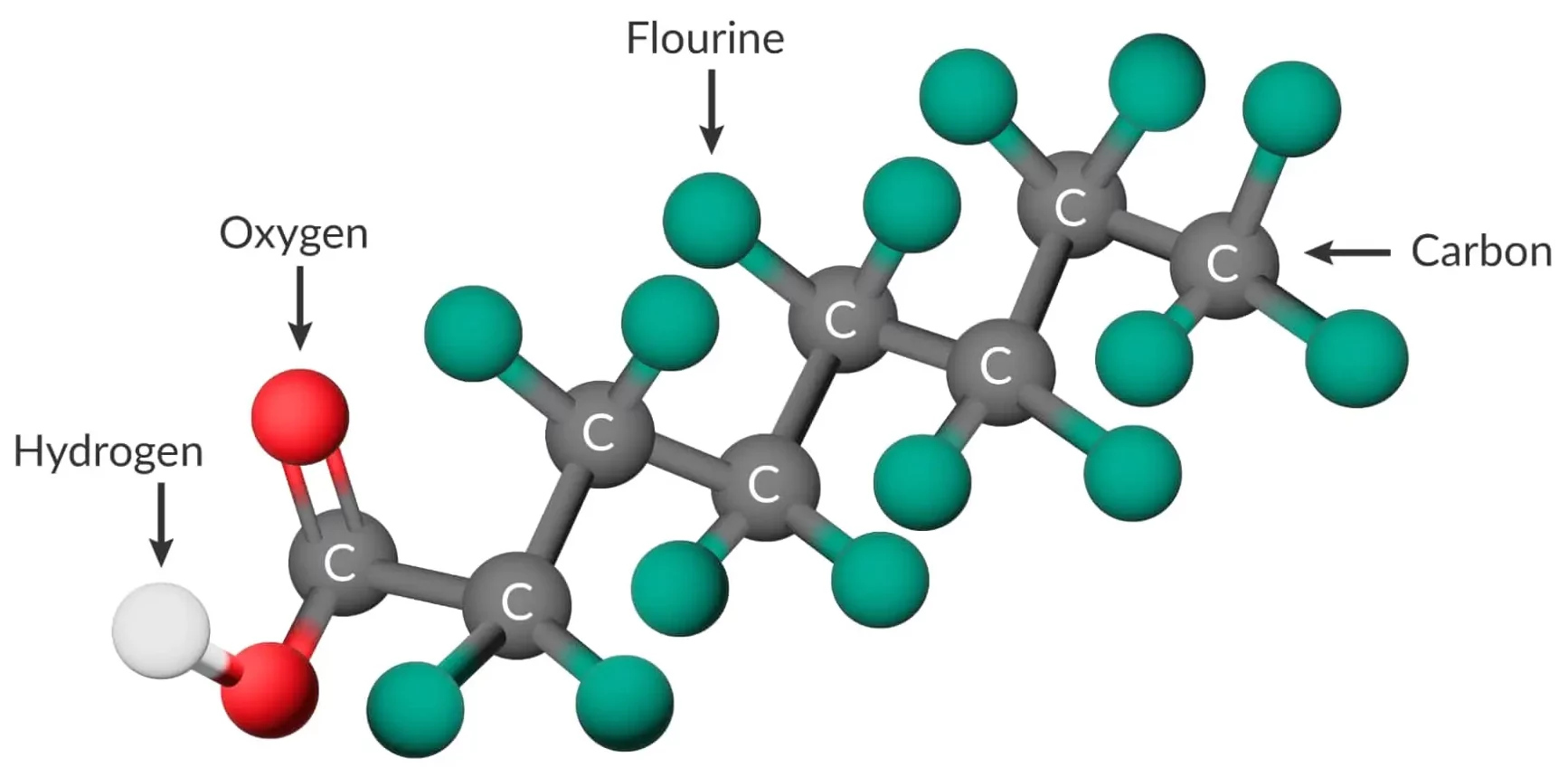Researchers have discovered toxic PFAS chemicals in Canadian fast-food packaging for the first time, raising health concerns and environmental alarms.
Scientists from the University of Toronto, Indiana University, and the University of Notre Dame detected per- and poly-fluoroalkyl substances (PFAS) in paper alternatives to plastic. PFAS are linked to cancer risks and immune system damage, making them a serious health hazard.
Canadians consuming such contaminants are unwitting victims of environmental pollution.
PFAS in Human Body from Fast-Food Packaging
PFAS are not biodegradable, meaning they never decompose, even when discarded packaging is discarded in waste streams. As “forever chemicals”, they constitute an environmental disaster.
When consumed, the contaminants from PFAS-laced packaging enter the human body, making people susceptible to health risks. The PFAS level contamination issue is a crucial problem that needs addressing urgently.

U.S. states have Banned PFAS from Most Food Packaging
PFAS is widely used in the food packaging industry, such as water-and-grease repellent paper alternatives to plastic. Concerns about the risks posed by PFAS have prompted 11 US states to ban it from most food packaging.
These states include California, Colorado, Connecticut, Hawaii, Maine, Maryland, Minnesota, New York, Rhode Island, Vermont, and Washington.
Two major restaurant chains have also committed to becoming PFAS-free by 2025. Canadian restrictions on single-use plastics in food-service ware are not enough. The research findings suggest consumers must seek alternative packaging.
Fast-Food Wrappers and Bowls Contaminated with PFAS
The researchers gathered 42 paper-based wrappers and bowls from Toronto fast-food restaurants and tested them for total fluorine. Florine is an indicator of PFAS. Detailed analysis of eight of those samples showed high levels of total fluorine.
The fiber-based molded bowls that were marked “compostable” contained three to ten times higher PFAS levels than a doughnut and pastry bags. PFAS are added to these bowls and bags as water- and grease-repellent.
Widespread Presence of Toxic PFAS
PFAS is a complex group of about 9,000 manufactured chemicals, few of which have been studied. The most abundant compound present in the test samples was 6:2 FTOH, a known toxic PFAS.
The study found other PFAS in all the Canadian fast-food packaging tested, which transform into this compound, thereby increasing a consumer’s exposure to it. First-time detection of several PFAS in food packaging highlights the difficulty in tracking these compounds’ presence.
Health and Environmental Dangers of PFAS
The concentration of PFAS in the samples declined by up to 85% after two years of storage, contradicting claims that polymeric PFAS composed of large molecules do not degrade and escape from products.
The release of PFAS from food packaging into indoor air exposes people to these hazards. PFAS use in food packaging demonstrates trading one harmful option — single-use plastics—for another.
Governments worldwide must strengthen regulations and push for fiber-based food packaging without PFAS. Mitigating the PFAS contamination issue requires a unified effort in adopting eco-friendly packaging alternatives.
In this other article, we overview a New Catalyst that Converts Plastic Waste Into Organosilanes.
Conclusion
In conclusion, the discovery of PFAS chemicals in Canadian fast-food packaging is a cause for concern for both human health and the environment.
With the potential for serious health effects and their persistence in the environment, governments and industries must take action to regulate and eliminate the use of PFAS in food packaging.
Consumers can also play a role in reducing their exposure to these chemicals by choosing environmentally-friendly packaging alternatives. It is only through a collective effort that we can mitigate the effects of PFAS contamination and create a safer and healthier future for all.
Reference
A new study finds toxic PFAS “forever chemicals” in Canadian food packaging. (2023, March 28). Link to the source.





